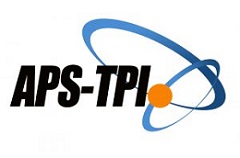Development of a Water Cycle E-module Assisted by a Flipbook Application for 5th Grade Elementary School Students
Abstract
This study aims to develop a water cycle E-module assisted by the Flipflop for fifth grade elementary school students. The use of technology not only provides flexibility during the learning process but also fosters active participation and enhances student interactivity, thereby creating a more meaningful learning experience. The research method used is research and development (R&D) with ADDIE model (Analysis, Design, Development, Implementation, Evaluation). The data collection techniques used in this study were observation, interviews, and questionnaires. Data collection instruments consist of observation sheets, interview guidelines, and student response questionnaires. The results of the study showed that the developed water cycle e-module was valid and practical to use. The research results from media experts obtained a percentage of 94.2% and material experts 98.5% which fell into the very valid category. Furthermore, in terms of practicality, the teacher obtained a result of 88.2% in the very practical category and when the small-scale trial obtained a percentage of 73.2% in the practical category and the limited-scale trial obtained a percentage of 80.7% in the practical category.
Keywords
Full Text:
PDFReferences
A, M. A., Suryani, N., & Ardianto, D. T. (2020). Digital Flipbook Empowerment as A Development Means for History Learning Media. JPI (Jurnal Pendidikan Indonesia), 8(2), 266. https://doi.org/10.23887/jpi-undiksha.v8i2.24122
Awwaliyah, H. S., Rahayu, R., & Muhlisin, A. (2021). Pengembangan E-Modul Berbasis Flipbook Untuk Meningkatkan Motivasi Belajar Siswa SMP Tema Cahaya. Indonesian Journal of Natural Science Education, 4(2).
Erwin, K., & Mohammed, S. (2022). Digital Literacy Skills Instruction and Increased Skills Proficiency. International Journal of Technology in Education and Science, 6(2), 323–332. https://doi.org/10.46328/ijtes.364
Ferdianto, F., Setiyani, & Nurulfatwa, D. (2019). 3D page flip professional: Enhance of representation mathematical ability on linear equation in one variable. Journal of Physics: Conference Series, 1188(1). https://doi.org/10.1088/1742-6596/1188/1/012043
Huang, R., Spector, J. M., & Yang, J. (2020). Lecture Notes in Educational Technology Educational Technology A Primer for the 21st Century. https://doi.org/https://doi.org/10.1007/978-981-13-6643-7
Ibrahim, E., & Yusuf, M. (2019). IMPLEMENTASI MODUL PEMBELAJARAN FISIKA DENGAN MENGGUNAKAN MODEL REACT BERBASIS KONTEKSTUAL PADA KONSEP USAHA DAN ENERGI. Jambura Physics Journal, 1(1), 1–13. https://doi.org/10.34312/jpj.v1i1.2281
Januarti, Islami, N., & Yennita. (2023). Development of Physics Modules Based on the REACT Learning Model of Sound Wave Material to improve the ability to Understand Concepts. Jurnal Penelitian Pendidikan IPA, 9(10), 8489–8497. https://doi.org/10.29303/jppipa.v9i10.4393
Lestari, S. (2018). PERAN TEKNOLOGI DALAM PENDIDIKAN DI ERA GLOBALISASI. Jurnal Pendidikan Agama Islam, 2(2). https://ejournal.unuja.ac.id/index.php/edureligia
Lusidawaty, V., Fitria, Y., Miaz, Y., & Zikri, A. (2020). PEMBELAJARAN IPA DENGAN STRATEGI PEMBELAJARAN INKUIRI UNTUK MENINGKATKAN KETERAMPILAN PROSES SAINS DAN MOTIVASI BELAJAR SISWA DI SEKOLAH DASAR. JURNAL BASICEDU, 4(1). https://jbasic.org/index.php/basicedu
Mahzuardi, Refdinal, Ambiyar, & Maksum, H. (2024). PENGEMBANGAN BAHAN AJAR E-MODUL MATA PELAJARAN MESIN PENGGERAK UTAMA KAPAL. Jurnal Penelitian Pendidikan IPA, 10(10), 8030–8041. https://doi.org/10.29303/jppipa.v10i10.8644
Manzil, E. F., & Anas Thohir, S. M. (2022). PENGEMBANGAN E-MODUL INTERAKTIF HEYZINE FLIPBOOK BERBASIS SCIENTIFIC MATERI SIKLUS AIR BAGI SISWA KELAS V SEKOLAH DASAR. Sekolah Dasar: Kajian Teori Dan Praktik Pendidikan, 31(2), 112–126.
Munawaroh, S., Seruni, R., Nurjayadi, M., & Kurniadewi, F. (2019a). PENGEMBANGAN E-MODULE BIOKIMIA PADA MATERI METABOLISME KARBOHIDRAT UNTUK MAHASISWA PROGRAM STUDI KIMIA. JTK (Jurnal Tadris Kimiya), 4(1), 69–77. https://doi.org/10.15575/jtk.v4i1.4679
Munawaroh, S., Seruni, R., Nurjayadi, M., & Kurniadewi, F. (2019b). PENGEMBANGAN E-MODULE BIOKIMIA PADA MATERI METABOLISME KARBOHIDRAT UNTUK MAHASISWA PROGRAM STUDI KIMIA. JTK (Jurnal Tadris Kimiya), 4(1), 69–77. https://doi.org/10.15575/jtk.v4i1.4679
Ramadhani, W., & Fitria, Y. (2021). Capaian Kemandirian Belajar Siswa dalam Pembelajaran Sains Tematik menggunakan Modul Digital. Jurnal Basicedu, 5(5), 4101–4108. https://doi.org/10.31004/basicedu.v5i5.1391
Safitri, S. N., Churiyah, M., Arief, M., & Zen, F. (2021). Pengembangan E-modul berdasarkan aplikasi Pdf Flipbook untuk meningkatkan kemampuan menulis dan kemampuan belajar mandiri peserta didik (E-module based on the corporate Pdf Flipbook application which is useful in the Covid-19 era). Jurnal Ekonomi, Bisnis Dan Pendidikan, 1(6), 589–599. https://doi.org/10.17977/um066v1i62021p589-599
Utari, W. M., Gunada, I. W., Makhrus, Muh., & Kosim, K. (2023). Pengembangan E-Modul Pembelajaran Fisika Model Problem Based Learning Berbasis Flipbook Untuk Meningkatkan Keterampilan Berpikir Kreatif Peserta Didik. Jurnal Ilmiah Profesi Pendidikan, 8(4), 2724–2734. https://doi.org/10.29303/jipp.v8i4.1822
Yuningsih, I. (2022). PENGEMBANGAN MODUL ELEKTRONIK BERPENDEKATAN SAINTIFIK PADA PEMBELAJARAN IPA KELAS VI. In Universitas Negerei Jakarta Kampus E Jl. Taman Setia Budi (Vol. 164, Issue 2).
Zaharah, Yelianti, U., & Asra, R. (2017). Pengembangan Modul Elektronik Dengan Pendekatan Saintifik Materi Sistem Peredaran Darah Pada Manusia Untuk Siswa Kelas VIII Electronic Module Development With Scientific Approach Material Human Circulatory System For Students In Class VIII (Vol. 6, Issue 1).
Zawacki-Richter, O., & Jung, I. (2023). Handbook of Open, Distance and Digital Education. https://doi.org/https://doi.org/10.1007/978-981-19-2080-6
Refbacks
- There are currently no refbacks.





.png)













